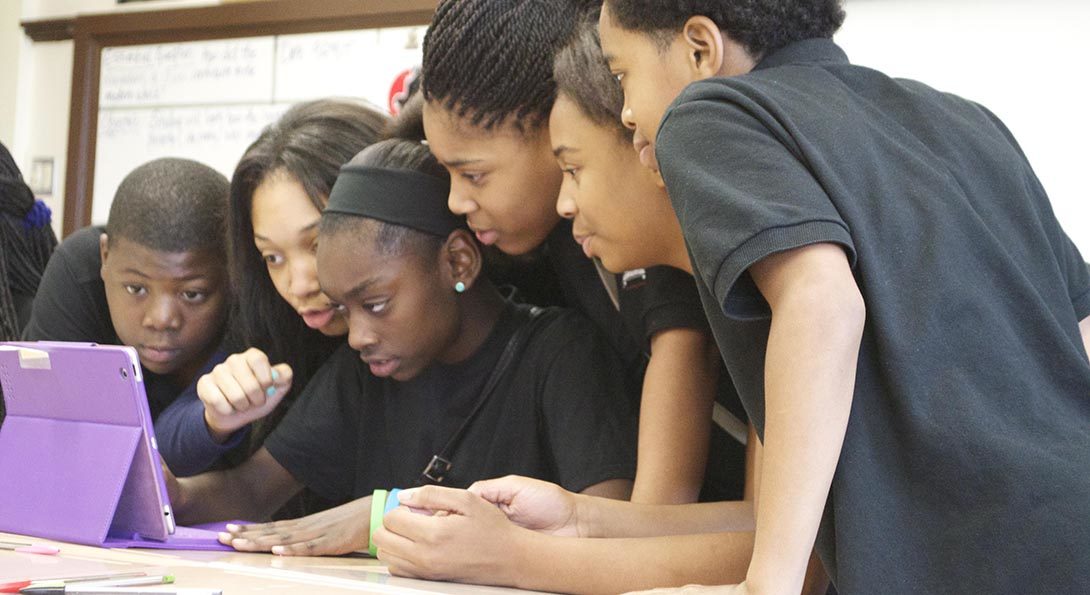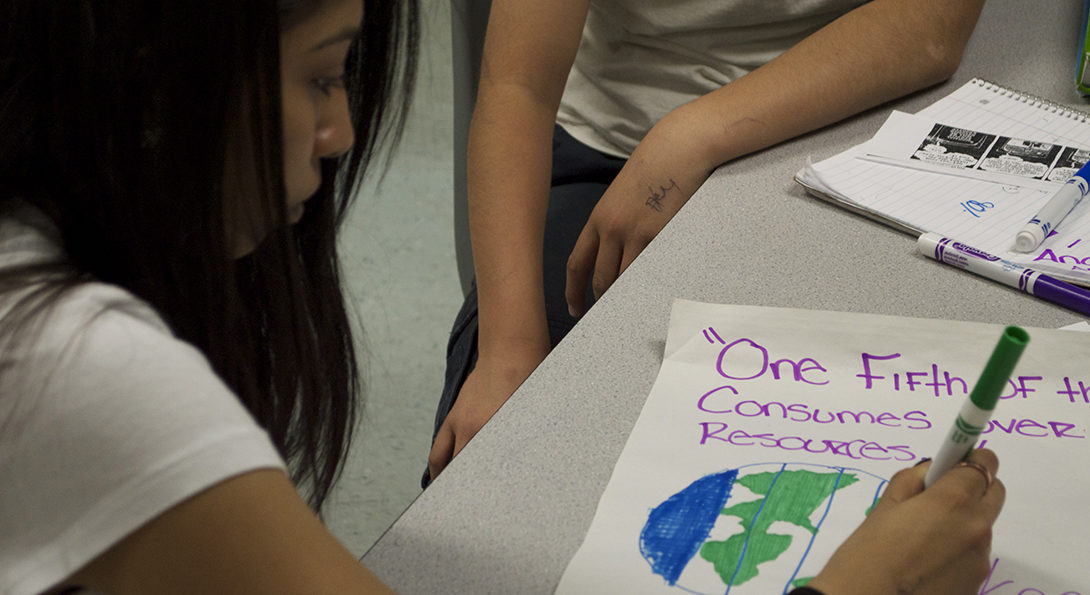Mission, Vision and Values
Introduction
Mission: We transform education to advance justice and liberation.
Vision: A world where education fosters human flourishing.
Values: Hope, Engagement and Justice
Our Commitment to Educating African American Children

The Children: Our vision for educating African American children requires that we collaborate with African American communities and families. Our vision moreover requires that we use our collective wisdom and resources—research, practice, and community knowledge—to prepare African American children for high-level literacy and numeracy development that promotes higher education and lifelong learning, meaningful workforce participation, and equitable social change not only in their local community, but also in society at large.
The Community: African American communities and families are diverse in nature but they share the African American philosophy of freedom for literacy and literacy for freedom which is linked not only to the legacy of slavery, but also to continued miseducation of so many that limits opportunities for individual and collective empowerment.
The Context: Education and schooling for African American children must be responsive and relevant to their lived realities and the social, cultural, and economic forces that impact those realities. These forces and conditions include racism, discrimination, and disproportionate poverty.
The Curriculum: Schooling experiences for African American children must promote positive self-identity, knowledge of African and African American history, and an understanding of how complex societal issues and events impact their lives as African American citizens in a global world. Teaching and learning should not only produce high academic outcomes, but also nurture resilience inside and outside of schools to shape positive life trajectories. Educators should frame the educational needs, experiences, and outcomes of African American children, not based on the needs, outcomes, and experiences of white children, but in terms of achieving high academic standards.
The Educators: We should recruit and prepare educators who understand the complexities of urban life and urban education, particularly in Chicago, and who through their teaching and leadership can help African American children succeed in the context of standards, accountability, and urban transformation.
The University: We should develop the institutional capacity to recruit and retain faculty and staff who demonstrate the ethics of caring and commitment toward African American children and their communities and schools. We should constantly examine and reshape our institutional practices—recruitment and preparation of teachers and school leaders, research, curriculum and policy development, and priority setting—to ensure that these practices are not complicit in the subjugation and degradation of African American children.
Our Commitment to Educating Latine Children

The Children: Our vision for educating Latine children requires that we prepare educators who model respect and tolerance for diversity, and foster self-worth, self-confidence, and self-advocacy among Latine children so that they may succeed academically and become knowledgeable and active citizens who are able to be leaders for their communities.
The Community: Latines represent diverse groups and socio-historical experiences, with cultures and beliefs that differ based on varied countries of origin, family structures, educational levels, and economic realities. Latine communities include individuals and families who are native to the United States, as well as new immigrants, both documented and undocumented. Latinos are unified by a strong affiliation to a common language, regardless of proficiencies in Spanish, as well as such cultural values as “familia” (i.e., the commitment to the group more so than to the individual).
The Context: Education in urban areas is often limited by the inequitable allocation of resources. Educators need to understand that the education of Latines is rooted historically in a struggle for educational equity and equality, and that their role in today’s society requires that they become active citizens who are willing to challenge policies and practices that result from racism and low expectations regarding Latine students.
The Curriculum: Education should build on the strengths that children bring with them from their homes, families, and communities, rather than on assumptions of deficiency. Community knowledge should comprise the bedrock of curriculum, and incorporate appropriate learning structures and practices. All children need to develop their English language abilities to the highest level, as well as be able to use their native language as a valuable resource for learning academic content and for developing literacy and numeracy. Latine children also need to learn about the historical experiences of their ethnic groups, including experiences of immigrants, in ways that enhance their sense of self.
The Educators: Educators need to be aware of the funds of knowledge of Latine families and communities, and build on these understandings to develop culturally sensitive pedagogy. Educators need to understand and be able to enact the benefits of bilingualism and biculturalism in learning, and should welcome Latine families’ active involvement in their children’s academic learning. Educators also need to be aware of the cultural value of “confianza” (mutual trust), and to collaboratively participate in the various networks that exist within the communities in which they work.
The University: We should actively recruit and graduate members of Latine communities who possess the needed knowledge, skills, dispositions, beliefs, and attitudes to become educators, educational leaders, and educational researchers. As well, we must support and retain those faculty and staff who teach and otherwise contribute to the education of our future educators.